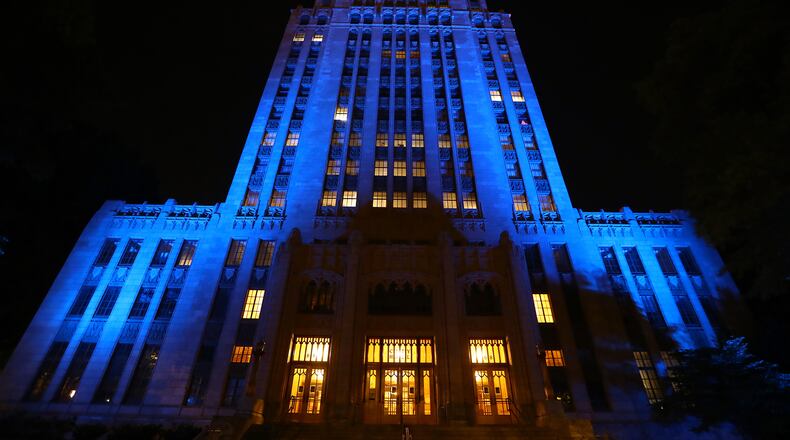It’s a bit ironic that this weekly roundup is called “Inside City Hall,” since we haven’t actually reported inside City Hall since the start of the pandemic, except for the occasional press conference.
That changes today, as the City Council holds an in-person meeting for the first time since March 2, 2020. After two years of communicating and voting through a virtual system, the return to council chambers is sure to change how the officials interact. In-person public comment will also resume.
Check back later for our report on the meeting, which will also include discussions and votes over a proposed 180-day moratorium on new rezoning applications in the “Upper Westside” area, and a resolution asking Atlanta police and other agencies to tackle the issue of burglaries at local film production companies.
---
Over the weekend: Atlanta has a new tool to stop people from doing donuts on the iconic rainbow crosswalk at the intersection of 10th and Piedmont: Metal plates. The massive metal slates are notorious among Atlanta drivers, and not everyone is happy with the proposed solution, but a city official told CBS46 the plates are “part of a broader multi-departmental plan to deter reckless driving in Atlanta.”
---
Mayor Andre Dickens is beginning to hold meetings aimed at improving the city’s slow permitting and licensing process.
He said during the Atlanta Regional Housing Forum on Wednesday that new Chief Operating Officer Lisa Gordon recently met with other city officials to discuss optimizing Atlanta’s customer-facing systems, which Dickens has promised to audit and overhaul.
One statistic that caught our attention: Dickens said a local real estate investment leader estimated that about $180 in monthly rent for apartments can be attributed to costs associated with the city’s slow permitting process, “meaning the builder has to put his money back on the tenant,” Dickens said.
---
The Center for Black Women’s Wellness has expanded at the Dunbar Neighborhood Center in southwest Atlanta to serve more residents with affordable health care. The center closed in 2020 due to the pandemic, but it recently reopened after completing a $400,000 renovation.
---
Quote of the week:
“What if we change it from ‘speed limit' to ‘chill limit'?"
Dickens and Atlanta Department of Transportation Commissioner Josh Rowan got an up-close look at how city maintenance crews creates 25 mph speed limit signs, light signals, and road striping machines. Rowan said Atlanta needs more fiber optic cables to synchronize its 1,000 traffic signals.
---
Banking company JPMorgan Chase is investing about $2.5 million in Atlanta to support organizations working to improve housing affordability in the Black, Hispanic and Latin communities. JPMorgan CEO Jamie Dimon is urging more corporate giants to follow his lead.
---
The Atlanta Housing Authority is teaming up with the Atlanta Beltline and Invest Atlanta on Tuesday to host a celebration for the start of construction for dozens of new affordable housing units. The Madison Reynoldstown development, located at 872 Memorial Drive, will be adjacent to the Beltline’s Eastside trail. Come back to us this week as we get more details on the project.
Keep Reading
The Latest
Featured




